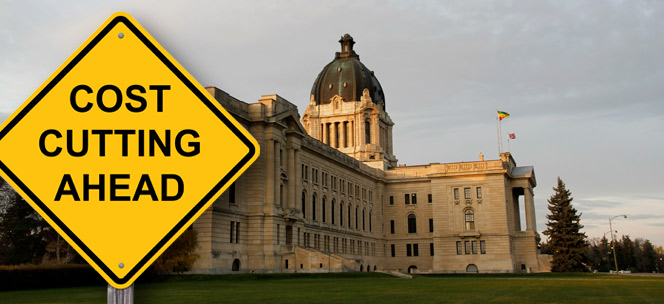
When asked why the government isn’t planning to cut taxes to make life more affordable, Finance Minister and Deputy Premier Donna Harpauer said “there’s lots of demands on the budget.”
What about the demands of a family budget?
Nearly 70 per cent of Saskatchewanians say they are paying much more now on essentials than they were last year. Almost half say they are $200 away from being unable to pay their bills. All the while, more and more people are turning to food banks to feed themselves and their families.
Family budgets have a lot of demands. Unlike the government, families can’t rely on taxpayer wallets to help them make ends meet.
Instead, taxes are one of the biggest items thinning out a family’s wallet. A two-income family making $100,000 dollars will pay about $7,056 in provincial taxes this year. That is more than that family will pay for home heating, electricity, auto insurance and their cell phone plans combined.
The government of Saskatchewan just delivered its throne speech and laid out its agenda for the next legislative session. Despite hints at “affordability measures” from the government, all taxpayers got was an extension of an already existing rebate for new housing construction.
In response to questions about introducing further affordability measures, Harpauer said there’s no “one solution to high inflationary times.”
But the solution to high prices is to make things cheaper. The government can do that by cutting taxes.
Premier Scott Moe knows this. After Prime Minister Justin Trudeau recently announced he would remove the carbon tax from home heating oil, Moe responded that Trudeau should extend this exemption to all types of home heating fuel so Saskatchewanians can get some tax relief during the cold winter months.
Paying less in taxes makes life more affordable, the premier knows that’s true when it comes to Ottawa taxes, he just needs to apply that same lesson in his own backyard.
The government can start making life more affordable by cutting taxes and the easiest one to cut is the tax that makes almost everything you buy more expensive, the provincial sales tax.
The same family mentioned above pays about $2,200 per year in PST. That’s all tacked on to the already high cost of buying essentials like clothes for you and your kids, school supplies, or a restaurant meal when you are away from home.
But if the government cut the PST by just one percentage point, that family would save about $370 per year. Unlike a specific PST rebate for housing, every single Saskatchewanian saves money when the government cuts the PST.
Saskatchewan can afford it, too, if only the government stopped wasting money.
The government can easily afford to cut the PST without impacting the budget if it stopped handing out taxpayers’ money on a silver platter to corporations. Whether its subsidizing Delta Airlines for $2 million to operate a single route or providing $17.5 million to movie studios to shoot in Saskatchewan, the government of Saskatchewan spends an average of about $869 million per year on subsidies, according to the Fraser Institute.
The government plans to rake in about $2.8 billion in PST revenue this year. Cutting the PST by one percentage point would see the government’s tax take drop by $466 million. Ending corporate welfare would more than pay for the PST cut and still leave about $400 million left over to cut other taxes or pay back government debt.
In fact, if the government found $64 million in other savings in addition to ending corporate welfare, the government could implement a two-percentage point cut to the PST and save that same family above more than $730 per year.
The Saskatchewan government has no excuse to not make life more affordable. Saskatchewanians deserve a sales tax cut.



.jpg)

.jpg)
